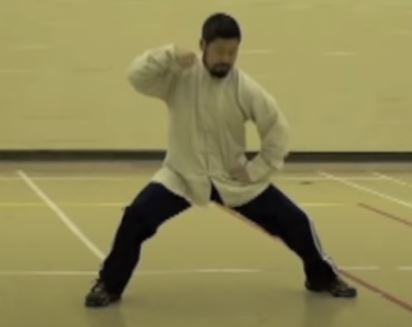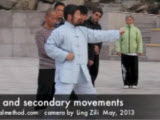The following is my proposal for teaching Tai Chi at Paradise Valley Community College (Phoenix, AZ). It was accepted and the class will be scheduled for the Spring 2017.
Balance, Strength, Brain Power
Tai Chi for Seniors = Quality of Life
Tai Chi is an ancient traditional Chinese form of martial arts. However, modern scientific studies have proven that people gain health benefits by practicing Tai Chi. Tai Chi is a comprehensive disciplinary system that requires years of study to fully master. There are three essential components of Tai Chi – Balance, Strength, and Brain Power. In order for individuals to derive benefits from Tai Chi, they need to focus on one, two, or all three of these essential components, based on their individual needs and physical abilities.
Balance, or rather the lack of balance, is responsible for seniors falling. Falling and subsequent muscular deterioration can lead to a range of major health issues. There are different ways to help seniors to improve their balance from practicing weight training, core strength training, squatting, or balance ball exercises. Tai Chi uses a more dynamic approach through natural body weight shifting, turning, various stepping patterns, movement coordination, and directional orientation. Tai Chi teaches practitioners how their body movements’ function in their daily lives enabling them to maintain proper body posture and achieve structural equilibrium.
Balance and strength are inseparable. Tai Chi improves core strength through movements while simultaneously maintaining balance. As a martial art, Tai Chi requires all movements to be performed with knees bent so the body weight is equally distributed on to the legs. Thus, the body’s core and legs are strengthened over time by regular practice.
Memory loss is a phenomenon directly related to aging. Unfortunately, forgetfulness happens to everyone and is a normal part of life. When we lose muscle strength, we can regain that loss by weight training. When we lose memory, we need to regain our memory power by mental training. One of the most common questions or concerns people have about Tai Chi is: “how can they ever remember all of the manyTai Chi moves?” The long sequences of Tai Chi moves are nothing more than piecing together small individual moves into a harmonious chain. Like any memory game, Tai Chi training builds brain power over time with regular practice.
Balance and strength are two important parts in the introductory Tai Chi program. People can gain the benefits in a short period of training. Brain power is also developed throughout Tai Chi, but is emphasized in advanced Tai Chi. It is difficult and challenging, but worth all the efforts leading to the triumph of achieving good balance, muscle strength, and brain power which equals quality of life. An added benefit for seniors is achieving these results in a collegial and supportive environment among their peers.
Ping Wei
Chen Style Tai Chi Practical Method



{ 2 comments… read them below or add one }
Master Wei, last semester i had a project at the university where the focus group was also the elderly, and i had to look into papers that supported my claims that Taiji could help in a lot of different areas. If you ever need links to articles or anything of that sort let me know. I still have it all laying around somewhere.
Good luck on your classes!
Thanks, Andre.
With a quick search, there are a lot of research papers available on line. I’m particularly interested in memory benefits that Tai Chi can provide. It’s easy to point out that Tai Chi is good for you. But Tai Chi is a complicated exercise for most people. Through out of years, I have been trying many ways to teach seniors. The new Tai Chi classes at community college would help me to optimize a better delivery system to help people acquire essential Tai Chi moves, so they can truly benefit from doing it.